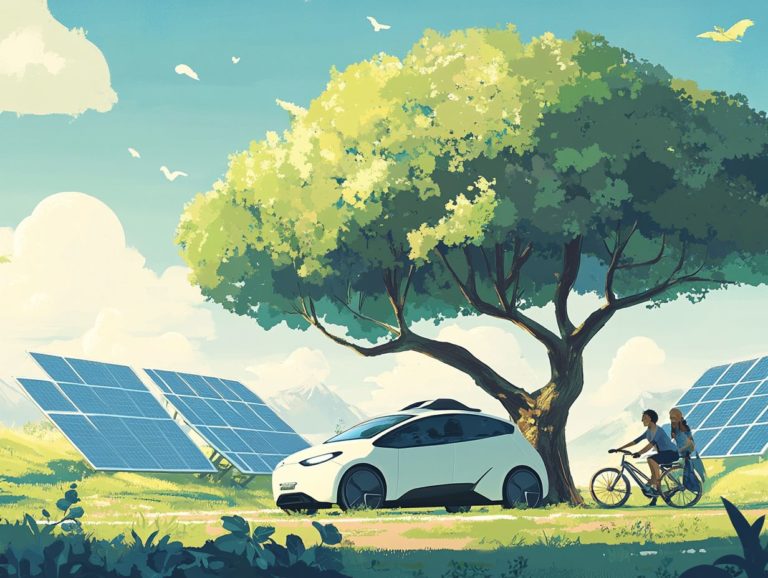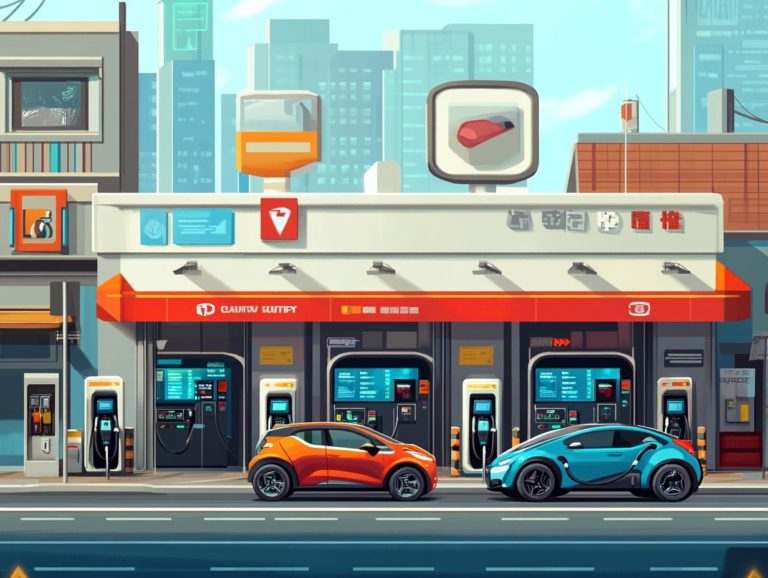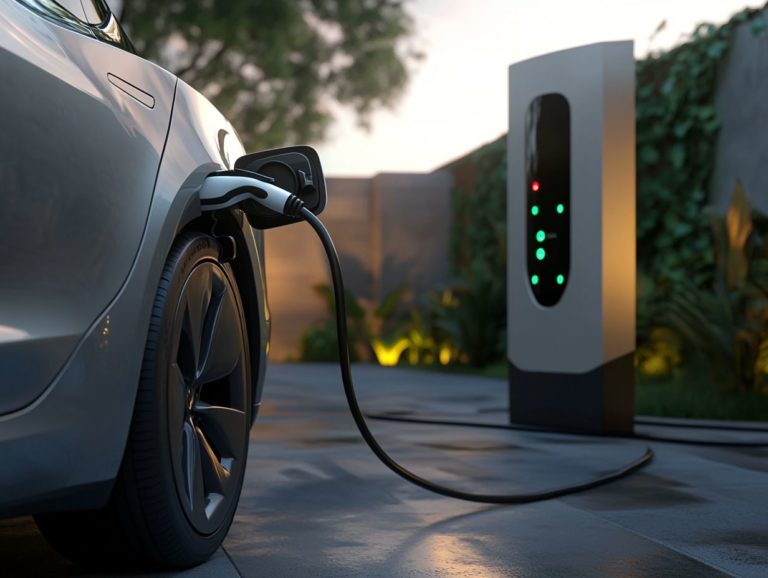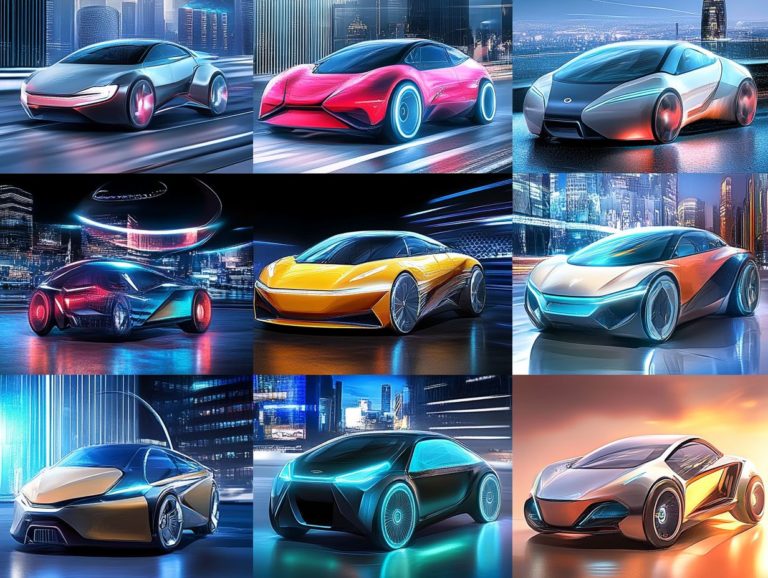17. why electric boats are gaining popularity
As environmental awareness expands and technology evolves, electric boats are making a splash in the boating industry.
With their eco-friendly advantages and significant cost savings, these innovative vessels are changing your experience on the water.
From battery-powered to hybrid models, it’s clear that electric boating is not just a passing trend; it’s a significant movement.
Explore the factors driving this growth, the challenges the industry faces, and what the future holds for electric boats.
Contents
Key Takeaways:
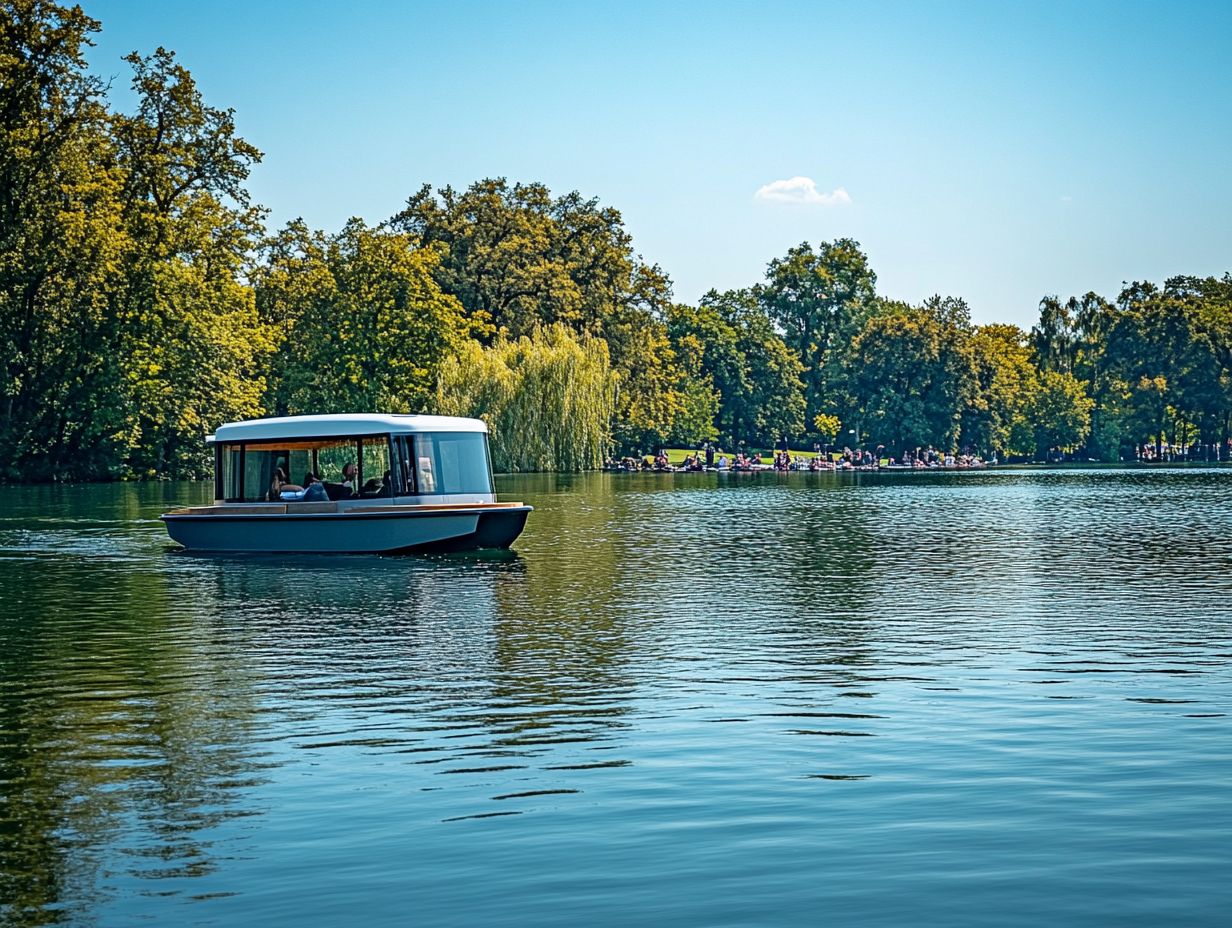
Electric boats are gaining popularity due to their eco-friendly benefits and cost savings. Major drivers include government incentives and growing consumer demand. While challenges like infrastructure and battery technology exist, the outlook for electric boats remains promising.
The Rise of Electric Boats
Electric boats are transforming the marine industry, driven by advancements in motor technology and a focus on sustainability.
Pioneers like Drew Johnson lead the way, promoting electric systems that produce zero emissions and support a sustainable future in recreational boating.
As more people recognize the benefits of battery-powered boats, the market value of electric vessels is set to surge, heralding a new era of responsible watercraft design that significantly reduces the carbon footprint of maritime activities.
Understanding the Trend
To understand the trend towards electric boats, it’s essential to recognize the captivating connection between technological innovation and consumer interest in sustainable options.
Recreational boaters are increasingly attracted to eco-friendly solutions that align with modern environmental values.
Interestingly, nearly 70% of new boat buyers are considering electric models, motivated by lower operating costs and a genuine desire to lessen their carbon footprint.
Improvements in charging station infrastructure are vital, with projections indicating a more than 30% increase in accessible charging points over the next five years, making electric boating more practical than ever.
This shift not only enhances your time on the water but also encourages peaceful wildlife encounters. Electric engines operate much quieter, allowing for a closer connection with nature.
Advantages of Electric Boats
Electric boats offer numerous advantages over traditional diesel engines. They provide significant environmental benefits, foster a quieter marine ecosystem, and come with lower maintenance costs.
This makes them an appealing choice for boaters looking to save money while cutting down on fuel expenses.
Environmental Benefits
The environmental benefits of electric boats are impressive. Operating with zero emissions, they greatly reduce their impact on the ecosystem and promote healthier wildlife interactions in our waters.
By utilizing renewable energy sources like solar or wind power, these vessels help lower carbon footprints and conserve aquatic ecosystems.
Many eco-tourism companies have successfully transitioned to electric boats, allowing for quiet, unobtrusive encounters with sensitive marine life. This shift promotes sustainable practices that protect habitats and reduce noise pollution, helping species like dolphins and manatees thrive.
The adoption of electric motors demonstrates innovation in addressing the environmental challenges faced by the boating industry.
Cost Savings
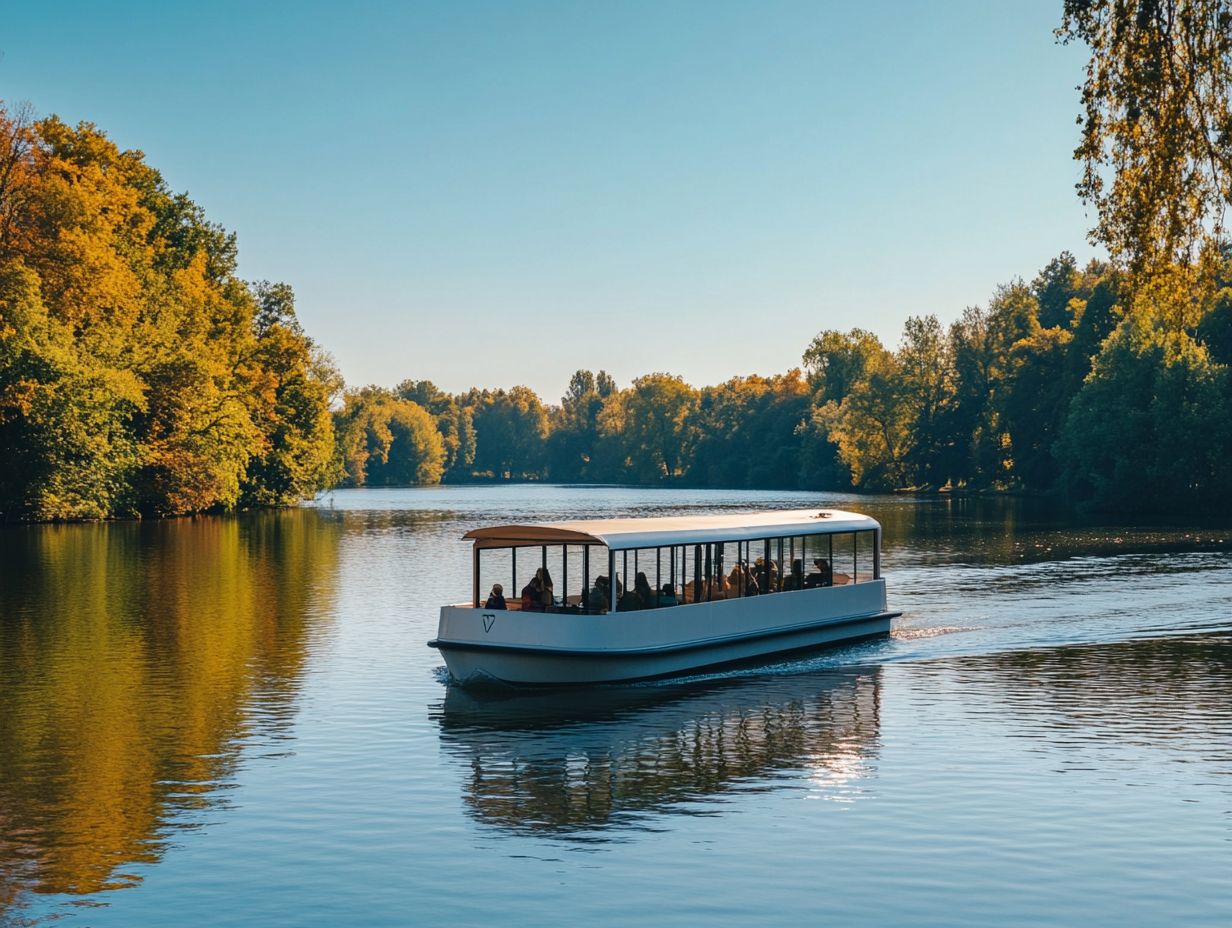
Cost savings stand out as one of the most compelling reasons to opt for electric boats. They typically come with lower maintenance costs and reduced fuel expenses compared to traditional boats.
Beyond these immediate advantages, you’ll also benefit from significant long-term savings. This is thanks to the efficiency of battery-powered systems. Unlike gas or diesel engines, which require regular servicing and costly fuel, electric boats harness clean energy, resulting in minimal maintenance.
This not only keeps your operational costs in check but also provides a more environmentally friendly boating experience. With advancements in battery technology, the overall affordability of electric options is set to improve. This makes them an increasingly practical choice for anyone looking to invest in the marine industry.
Types of Electric Boats
Electric boats come in various types, including sleek battery-powered boats and sophisticated hybrid models that combine electric motors with traditional ways of moving.
This diversity caters to your unique preferences and needs, ensuring there’s an option perfect for your aquatic adventures.
Battery-powered vs. Hybrid
The distinction between battery-powered and hybrid models in the electric boat market revolves around the choice between relying solely on electric motors or combining power sources. Each option brings its unique advantages in performance.
Battery-powered boats depend entirely on electric energy, using advanced lithium-ion technology. This offers a quiet and eco-friendly navigation experience. You’ll love how quiet and eco-friendly they are, especially if you prioritize sustainability in your aquatic adventures.
On the other hand, hybrid electric boats combine traditional fuel engines with electric propulsion. This grants you the flexibility of extended range and enhanced performance, which is especially beneficial for those planning longer journeys or needing consistent power on the water.
While both options cater to the increasing demand for greener alternatives in boating, your ideal choice often hinges on your specific boating habits, regional regulations, and performance needs. This ultimately serves a diverse spectrum of enthusiasts and casual users alike.
Factors Driving Popularity
Several factors are fueling interest in electric boats. Enticing government incentives encourage environmentally friendly practices, while a growing consumer demand for sustainable marine options is making these boats increasingly popular.
Government Incentives
Government incentives are essential to the flourishing electric boat market. They provide subsidies and favorable regulations that entice investment in eco-friendly technology. These incentives benefit manufacturers and consumers considering the switch to electric-powered boats.
For example, many states have rebate programs that significantly lower the purchase price of electric boats, making them more accessible to a broader audience. Tax credits for installing charging stations also reduce costs.
Successful initiatives, like California s Clean Boating Program, illustrate how public funding can foster the adoption of cleaner technologies. This leads to reduced emissions and better protection of waterways. Such programs significantly contribute to cultivating a sustainable marine environment that benefits everyone.
Consumer Demand
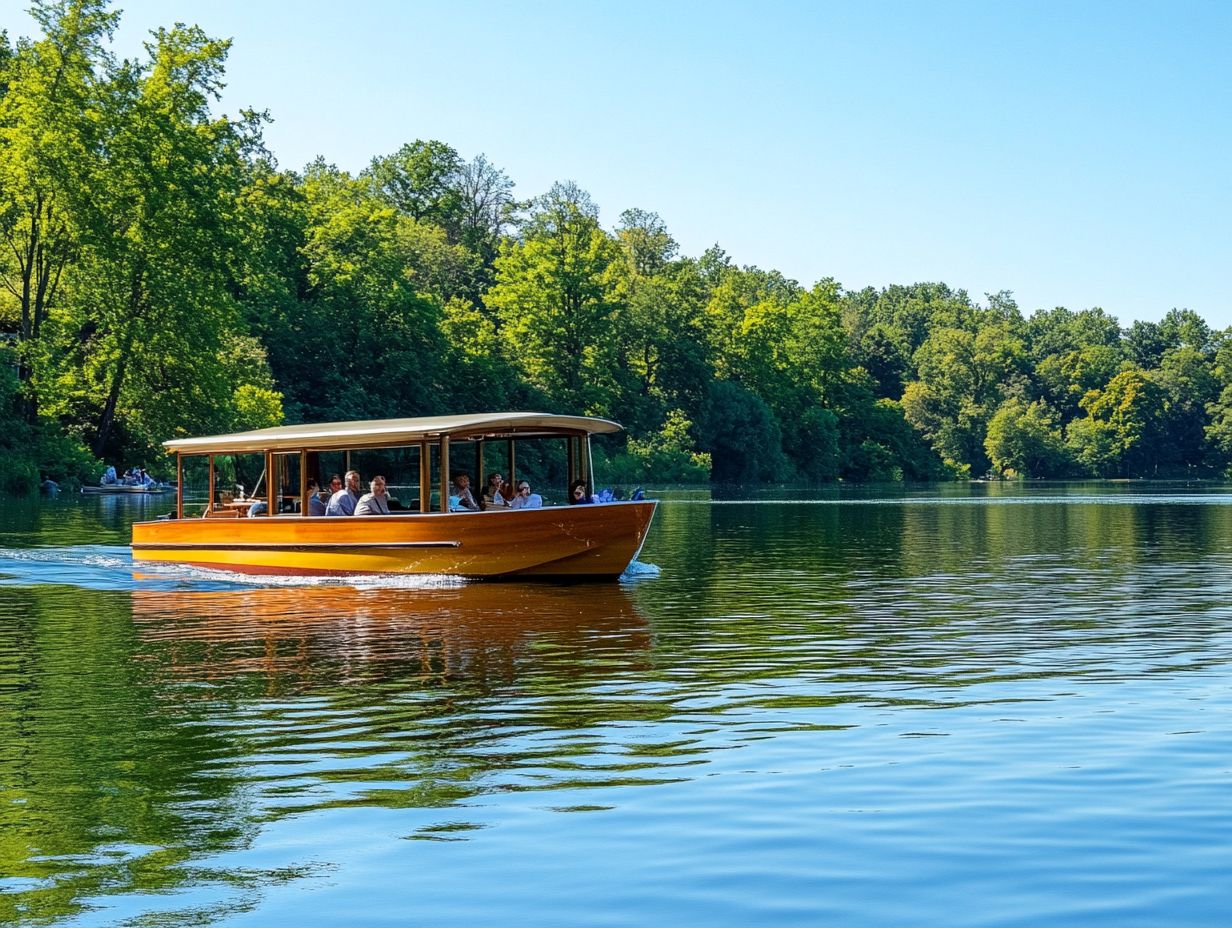
Consumer demand for electric boats is rising! This shift is driven by heightened awareness of sustainability and a desire for cleaner marine technology that resonates with contemporary ecological values.
This movement reflects a broader societal focus on environmental responsibility. With growing concerns about climate change and ocean pollution, you’re likely seeking alternatives that help minimize your carbon footprint.
Technological advancements are pivotal in this transition, offering enhanced battery life and performance that make electric options even more enticing. The market dynamics are shifting as manufacturers unveil innovative designs and competitive pricing, bringing these boats within reach for a broader audience.
Surveys and market analyses indicate that buyers are increasingly informed and deliberate in their purchasing choices, drawn to sustainability.
Join the movement toward cleaner boating today!
Challenges and Limitations
While electric boats offer numerous advantages, you ll encounter several challenges and limitations that may pose obstacles, particularly in terms of infrastructure and the current state of battery technology.
These factors can significantly hinder widespread adoption. It is essential to consider them as you explore this changing boating world.
Infrastructure and Battery Technology
The state of infrastructure and battery technology plays an important role in the success of electric boats. If the network of charging stations remains limited and battery technology is still in development, your operational range may face significant constraints.
As more enthusiasts turn to this eco-friendly alternative, navigating the waters can become tricky. Sparse charging stations in many regions complicate the planning of longer journeys. Advancements in battery technology are critical.
Imagine having batteries that last longer and charge faster. This could dramatically elevate your experience, allowing for extended excursions without the nagging concern of running out of power. Innovations like wireless charging and solar panels seamlessly integrated into the boat s design could enhance operations, allowing you to explore with confidence and a sense of adventure, even in areas with fewer resources.
The Future of Electric Boats
The future of electric boats is incredibly exciting, fueled by continuous technological advancements and a growing awareness of environmental impact among both consumers and manufacturers.
Innovations will lead to more sustainable practices in the boating industry, enhancing not just performance but also ecological responsibility.
Predictions and Potential Impact
Predictions for the electric boat market hint at a remarkable increase in value, driven by your growing awareness of environmental benefits and sustainability. Expect a thrilling surge of about 15% growth in the next five years, according to recent market analyses.
Technological advancements, including enhanced battery efficiency and solar-powered systems, are on the verge of transforming boat design and functionality. As you become more environmentally conscious, your purchasing decisions are likely to lean toward electric options rather than traditional fuel-based models.
Experts say that more charging stations will lead to a huge rise in demand, making this an exhilarating time for both industry stakeholders and consumers like yourself.
Frequently Asked Questions
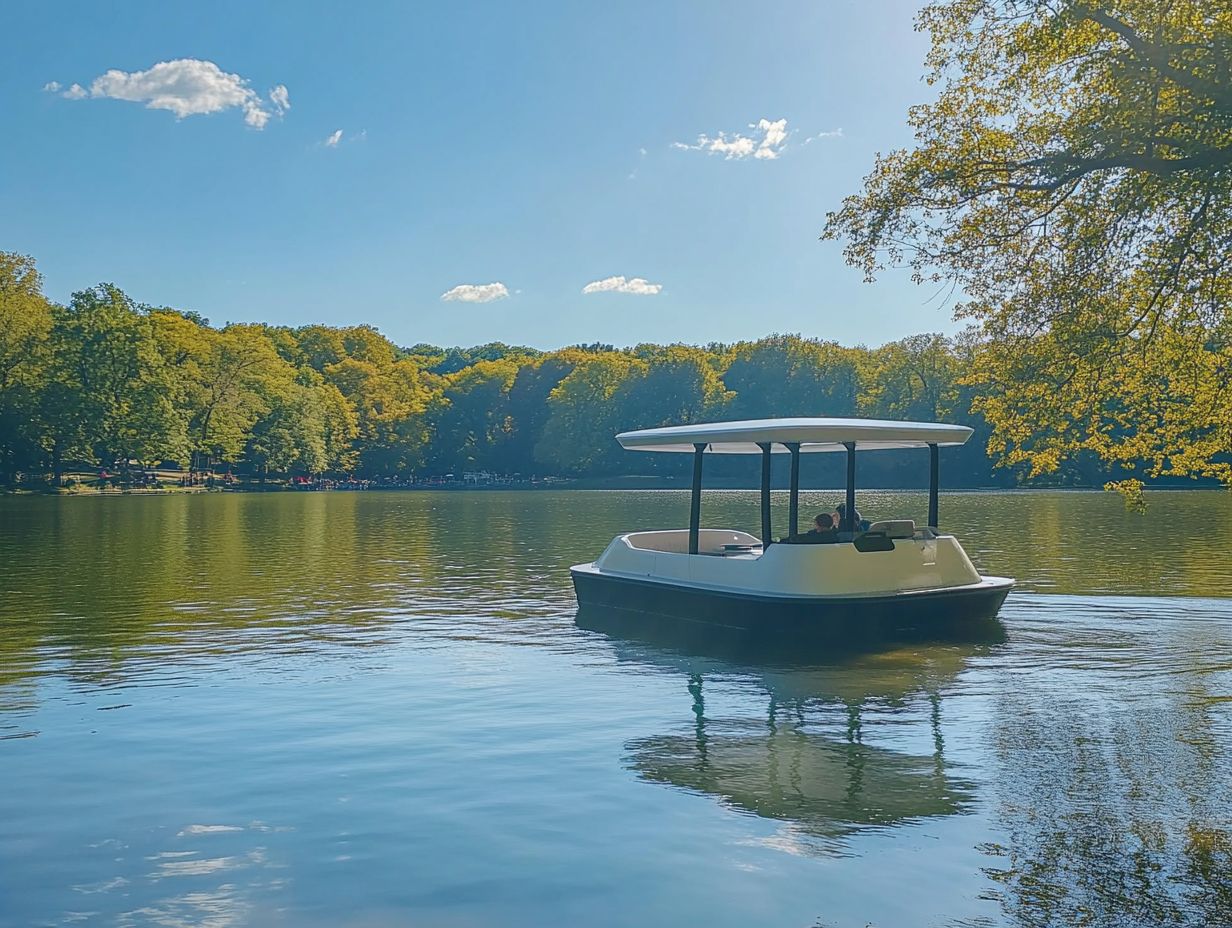
What are electric boats?
Electric boats are watercraft powered by one or more electric motors instead of traditional fuel-powered engines. They use electricity from batteries to propel the boat, making them environmentally friendly.
Why are electric boats gaining popularity?
Electric boats are gaining popularity due to their numerous benefits. They are more eco-friendly, less noisy, have lower operating costs, and require less maintenance compared to traditional fuel-powered boats.
What are the environmental benefits of electric boats?
Electric boats do not produce any emissions, making them better for the environment. They also do not leak fuel or oil, reducing the risk of water pollution. Additionally, they do not emit noise pollution, making them less disruptive to marine life.
Do electric boats have any financial advantages?
Yes, electric boats can save boat owners money in the long run. They have lower operating costs as electricity is typically cheaper than fuel. They also require less maintenance, as electric motors have fewer moving parts compared to traditional engines.
Are there any limitations to electric boats?
While electric boats have many advantages, they also have some limitations. They have a limited range, and the batteries need to be recharged regularly. This may not be suitable for long-distance boating or for those who require fast speeds.
Can any boat be converted to electric?
Not all boats can be converted to electric. It depends on the size and weight of the boat and the availability of suitable electric motors. However, many boat manufacturers are now producing electric boats, making it easier to purchase one instead of converting an existing boat.

